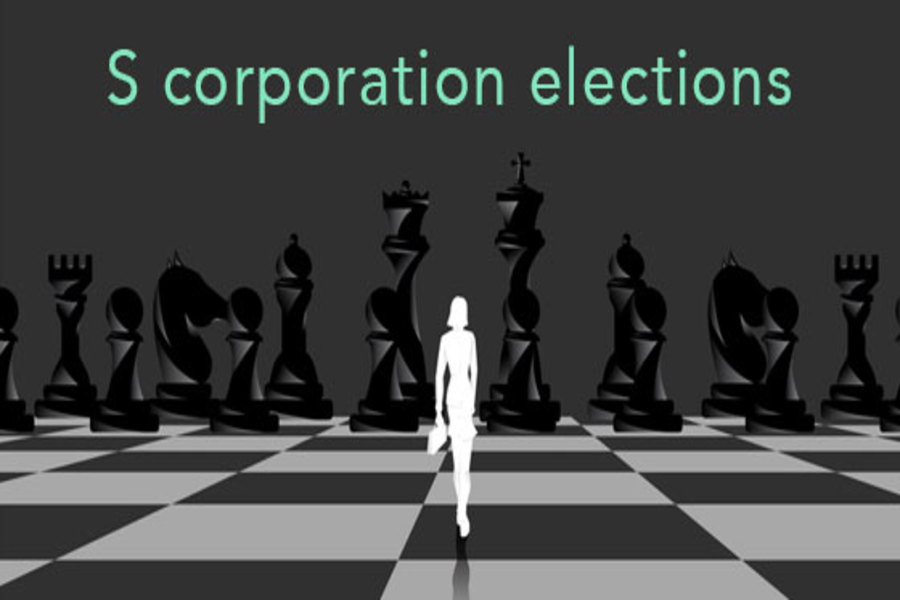In response to the ongoing Coronavirus Disease 2019 (COVID-19) pandemic, IRS Notice 2021-07 provides temporary relief for employers and employees using the automobile lease valuation rule to determine the value of an employee’s personal use of an employer provided automobile for purposes of income inclusion, employment tax, and reporting. Due solely to the COVID-19 pandemic, if certain requirements are satisfied, employers and employees that are using the automobile lease valuation rule may instead use the vehicle cents-per-mile valuation rule to determine the value of an employee’s personal use of an employer-provided automobile beginning as of March 13, 2020. For 2021, employers and employees may revert to the automobile lease valuation rule or continue using the vehicle cents-per-mile valuation rule provided certain requirements are met. GRANT OF RELIEF Due to...

As we approach the end of the year, it’s a good time to think about whether your business needs to buy business equipment and other depreciable property. If so, you can cash in on depreciation tax savers such as §179 for business property. The election provides a tax windfall to businesses, enabling them to claim immediate deductions for qualified assets, instead of taking depreciation deductions over time. Even better, the §179 deduction isn’t the only avenue for immediate tax write-offs for qualified assets. Under the 100% bonus depreciation tax break, the entire cost of eligible assets placed in service in 2020 can be written off this year. But to benefit for this tax year, you need to buy and place qualifying assets in service by December 31. What qualifies? The §179...
Are you considering replacing a car that you’re using in your business? There are several tax implications to keep in mind. A cap on deductions Cars are subject to more restrictive tax depreciation rules than those that apply to other depreciable assets. Under so-called “luxury auto” rules, depreciation deductions are artificially “capped.” So is the alternative §179 deduction that you can claim if you elect to expense (write-off in the year placed in service) all or part of the cost of a business car under the tax provision that for some assets allows expensing instead of depreciation. For example, for most cars that are subject to the caps and that are first placed in service in calendar year 2020 (including smaller trucks or vans built on a...
S corporations can provide tax advantages over C corporations in the right circumstances. This is true if you expect that the business will incur losses in its early years because shareholders in a C corporation generally get no tax benefit from such losses. Conversely, as an S corporation shareholder, you can deduct your percentage share of these losses on your personal tax return to the extent of your basis in the stock and any loans you personally make to the entity. Losses that can’t be deducted because they exceed your basis are carried forward and can be deducted by you when there’s sufficient basis. Therefore, your ability to use losses that pass through from an S corporation depends on your basis in the corporation’s stock and debt....
Owners of closely held corporations are often interested in easily withdrawing money from their businesses at the lowest possible tax cost. The simplest way is to distribute cash as a dividend. However, a dividend distribution isn’t tax-efficient, since it’s taxable to you to the extent of your corporation’s “earnings and profits.” And it’s not deductible by the corporation. Fortunately, there are several alternative methods that may allow you to withdraw cash from a corporation while avoiding dividend treatment. Here are 5 ways to take cash out of your closely-held corporation to consider: Capital repayments. To the extent that you’ve capitalized the corporation with debt, including amounts that you’ve advanced to the business, the corporation can repay the debt without the repayment being treated as a...
According to data company Dun & Bradstreet, business identity theft increased more than 250% in the first half of 2020. You can thank the pandemic — and the government’s release of relief and recovery funds to qualified U.S. businesses — for this remarkable number. In a more typical year, crooks use stolen business identities to file fraudulent tax returns, apply for credit and empty bank accounts. Is your business vulnerable? However they might try to use your company’s information, there are steps you can take to reduce the risk. Protecting sensitive information Thieves often use malware to infect computers and gather sensitive data from businesses. They also create fake websites that trick employees into entering login and password information. To protect against these tactics, deploy patches when...
These days, many offices and other workspaces are nearly empty as employees work from home. This can make companies that don’t safeguard their computers, printers and other equipment vulnerable to theft from outsiders. Even during normal times, businesses often lose assets because crooked employees walk out with them. Here’s how to protect valuable property — no matter who’s eyeing it. Asserting ownership First, claim your business’s assets. This means adding security plates and indelible identity markings to machines. These additions can help you track stolen equipment, inhibit resale and discourage thieves from trying to steal in the first place. Security software can help you track stolen computers online. As soon as the thief connects to the Internet, the computer’s software contacts a security firm’s monitoring system, which traces...
If you own a business, you may wonder if you’re eligible to take the qualified business income (QBI) deduction. Sometimes this is referred to as the pass-through deduction or the §199A deduction. The QBI deduction: Is available to owners of sole proprietorships, single member limited liability companies (LLCs), partnerships, and S corporations, as well as trusts and estates. Is intended to reduce the tax rate on QBI to a rate that’s closer to the corporate tax rate. Is taken “below the line.” In other words, it reduces your taxable income but not your adjusted gross income. Is available regardless of whether you itemize deductions or take the standard deduction. Taxpayers other than corporations may be entitled to a deduction of up to 20% of their QBI. For...
Management overrides of internal controls can make your company more vulnerable to fraud. This is true even when managers have innocent intentions — for example, they don’t feel they have time to follow proper accounts payable procedures because a vendor is requesting immediate payment. Your company is at even higher risk of fraud losses . . . controls are ineffective . . . if a senior manager intentionally ignores the rules to manipulate financial statements. Warning signs Management overrides of financial controls can be difficult to detect. However, there are several warning signs that a manager isn’t fully adhering to the policies and procedures your organization has adopted. For instance, a manager may fail to call attention to business risks or dispute an auditor’s findings regarding his...
Ghost employees and other payroll scams are trouble for employers. They may be just as fictional as the paranormal activities in your favorite scary book or movie, but if you have ghost employees on your payroll, you have fraud. And if you have fraud, you have potentially significant financial losses. Anatomy of a scheme Ghost employee schemes usually are perpetrated by employees who have easy access to payroll records. If your company’s internal controls are loose enough to be exploited, a greedy or disgruntled staffer could invent an employee, put this “person” on the payroll and direct deposit paychecks to a bank account in the ghost’s name. It may seem like it would be easier to hide ghost employees in large companies. In fact, small businesses, where a...











